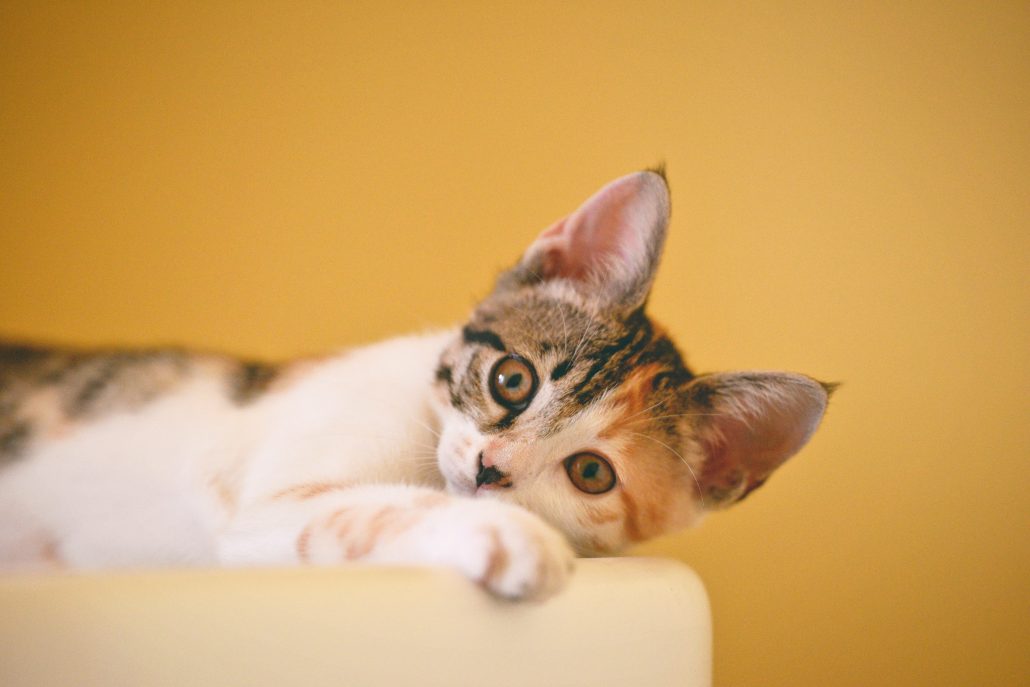How To Stop Your Cat From Spraying
Has Your Cat Been Spraying?
Cats are meticulous animals and are usually limited to a litter tray or garden. The scent of cat urine in the house or the finding of feces in the corner of the room might be alarming.
Illness, being stuck in a room, or sudden panic, can all lead to a one-off accident. However the explanation for excessive deposition of urine or feces in the home would need to be determined for the health and well-being of the cat.
Cat spray is an improper urination on objects or areas to mark the territory. It may occur at any age, race or gender, and urine spraying is more common to males than females.
Spraying around doors or windows may be a marked reaction to the presence of a cat outside. Marking at home may be an answer to another cat, either at home or outdoors. Often, due to competitive actions, the likelihood of indoor spraying of urine is directly proportional to the number of cats in the household.

Cause of spraying and marking:
You should also consider the probability that there might be a physical reason for your behaviour. Here are some of the possibilities:
- Illness of the liver
- Hyperthyroidism
- Urinary tract, kidney stone or bladder stone
- Excessive glucose in the urine (diabetes mellitus)
- FLUTD, like bladder inflammation (cystitis)
- Period of old age (neurological issues that are due to senility)
- Feline leucemia virus (FeLV)
- Stress
- Urinary tract infections

No matter what the reason, punishment is not the solution. This would only make the cat more scared and make the situation worse.
Cats use urine as a fragrance signal or as a symbol for themselves and other cats. The fragrance-marking incentive is distinct from that of urinating to relieve the full bladder. Watching the cat in action, or a bit of detective work at the spot, will help decide if the cat is spraying or urinating.
To urinate, your cat is squatting and depositing an amount of urine on the horizontal floor. A carpet, a duvet, a couch or a bath are usually preferred places.
To spray, however, cats stand up, normally making a treading motion with their hind legs, their tails upright and shimmering. A small amount of urine is sprayed back onto a vertical surface such as a wall, leaving an obvious fragrance mark.
Cats typically prefer to spray a spot near the door or window, particularly curtains. Some specialize in spraying electrical appliances or new household products such as shopping bags!
When you have decided which of the above things your cat is doing, you will take steps to fix your behaviour.
How to Stop Your Cat From Spraying
Have your cat spayed or neutered. Unclean male cats are the most likely to indulge in this very undesirable activity. Occasionally, unpaid females will do this as well. It is also best to neuter or spay your cat before the age of 6 months so as to prevent it from developing when puberty strikes. However a small percentage of neutered males and an even smaller percentage of neutered females can spray.
How To Stop Your Cat From Spraying
Give Your Cat Attention
Give a lot of attention to your pet. Some cats are spraying for publicity. Spend time each day with your cat, petting and engaging in a positive way. Given their image as distant and autonomous, your cat needs to be in touch with you. Brushing your cat or playing a laser catch game (using a cat laser light) is a fun way to connect.
Toys, such as feathers, fake mice, toys, and treatment dispensers, can give your cat exercise and mental stimulation.
Cat furniture offers cats a perfect way to climb, hide, and recover from the hubbub of a noisy household. Pet shops and veterinarian offices have a wide range of toys and cat furniture to choose from and staff can help you make wise decisions.
How To Stop Your Cat From Spraying
Find The Root Of Stress
 If your pet sprays because they feel nervous, you need to find the root cause of the problem. Look for signs of feral or stray cats lurking around, such as cat drops or dead mice or birds left on porches. The presence of a feral cat may challenge the authority of your cat. If you have any other pets, decide if they might be bullied or abused by your cat.
If your pet sprays because they feel nervous, you need to find the root cause of the problem. Look for signs of feral or stray cats lurking around, such as cat drops or dead mice or birds left on porches. The presence of a feral cat may challenge the authority of your cat. If you have any other pets, decide if they might be bullied or abused by your cat.
How To Stop Your Cat From Spraying
Check Their Environment

Many cats don’t like sudden changes, and they can feel nervous. Before you leap to the conclusions, ask yourself the following questions:
- Have you moved here recently?
- Have you been moving away for a while?
- Have you rearranged the living area of your cat?
- Have you moved the food and water bowls?
- Is the litter box clean and tidy?
These adjustments can also cause undue stress on your pet. If you have enough space, consider setting out a few litter boxes so that your cat always has a nearby option when nature calls.
Restrict the view of your cat of other cats or species. Since cats mark their territories to keep suspected rivals away, if they cannot see other animals, they will not be able to spray.
There’s going to have to be enough space between your cat and the other animal, because your cat doesn’t scent the smell of the other.
How To Stop Your Cat From Spraying
Use Synthetic Pheromones
Anxiety plays a part in many inappropriate feline habits, including urine spraying and aggression. Feline synthetic pheromones can be used to calm down and create a more relaxed atmosphere.
Synthetic pheromones imitate the pheromones that cats emit when they feel relaxed in their surroundings. Typically, they release it by facial rubbing.
These products are available in sprays, diffusers and collars.
How To Stop Your Cat From Spraying
If you’ve recently introduced a new cat to your home, remember that it is imperative to ensure that your cat or kitten is vaccinated and dewormed. Get in touch with us for all your veterinary needs.

